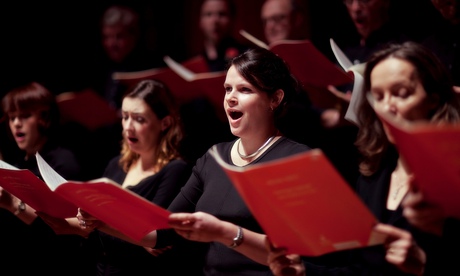
This programme by the BBC Singers under conductor Andrew Carwood emphasised the choir’s confidence and versatility in moving backwards and forwards between the Elizabethan period and our own; the collective skill of the members of the viol consort Fretwork added subtle colourings to their accompanying textures in the two biggest pieces.
The first of these, Thea Musgrave’s Wild Winter II, was written to commemorate the siege of Lichfield during the English civil war and dates from 1996. Musgrave’s chosen texts concerning the inhumanities of war range from Petrarch, Pushkin and Victor Hugo to Lorca, Trakl and Wilfred Owen, and her ability to find appropriate choral and instrumental gestures to match these varied poetic expressions remains remarkable, providing worthy testimony to her inventive powers.
More personal in approach was Nico Muhly’s My Days from 2012, which sets sections of Psalm 39 alongside a graphic description of the death of Orlando Gibbons as recorded in his autopsy in 1625. Fascinated as he is by both the music of Gibbons and Byrd on the one hand and by American minimalism on the other, Muhly struggles to achieve unity in a piece that sits awkwardly somewhere between the two idioms.
The rest of the programme consisted of works by Gibbons himself alongside others by Byrd and Christopher Tye. Gibbons’s The Cries of London felt too polite, as if its musical niceties – neatly displayed by this outstanding group of musicians – trumped the need for a more demotic and streetwise use of the vernacular. More successful was the verse anthem Behold, Thou Hast Made My Days, which also sets parts of Psalm 39, and in which Cherith Millburn-Fryer brought unaffected eloquence to the solo part; and the joyous O Clap Your Hands Together, which had just the right level of evangelical, rhythmical zeal.

